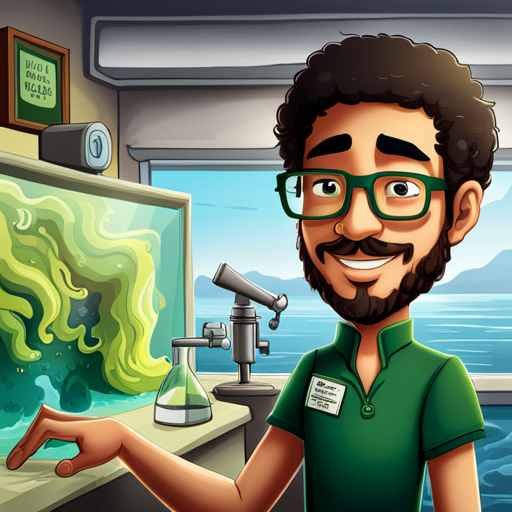The increasing global demand for energy, combined with the need to reduce greenhouse gas emissions, has led scientists and engineers to explore various methods to produce sustainable and renewable energy sources. One such promising alternative is biofuel production from microalgae. Microalgae are microscopic, photosynthetic organisms that can convert sunlight into biomass at a much higher efficiency than terrestrial plants. This biomass can then be converted into various forms of biofuel, including biodiesel. One of the most common methods for producing biodiesel from algae biomass is through a process called transesterification.
Transesterification is a chemical reaction that involves the conversion of triglycerides, which are the primary components of vegetable oils and animal fats, into biodiesel. The process involves reacting the triglycerides with an alcohol (usually methanol or ethanol) in the presence of a catalyst (such as sodium hydroxide or potassium hydroxide) to produce biodiesel (fatty acid methyl esters) and glycerol as a byproduct. The overall reaction can be represented as follows:
Triglyceride + 3 Alcohols -> Biodiesel (3 Fatty Acid Esters) + Glycerol
In the context of algae biofuel production, the transesterification process begins with the extraction of lipids (fats and oils) from the microalgae biomass. This can be achieved using various methods such as solvent extraction, mechanical pressing, or microwave-assisted extraction. Once the lipids are extracted, they are subjected to the transesterification process described above to produce biodiesel.
Algae-based biodiesel offers several advantages over conventional biodiesel produced from terrestrial plants. First, microalgae have a much higher lipid content than most plant species used for biodiesel production, such as soybeans or palm oil. This means that more biodiesel can be produced per unit area of cultivation. Additionally, microalgae can be grown in non-arable land and saline water, reducing competition with food crops for resources such as land and freshwater. Furthermore, microalgae can utilize carbon dioxide (CO2) from various industrial sources, such as power plants, to grow, thereby reducing greenhouse gas emissions.
Despite these advantages, the commercial production of algae-based biodiesel is still in its infancy. One of the main challenges facing the industry is the high cost of production compared to conventional fossil fuels and other biofuels. Some of the factors contributing to this high cost include the energy-intensive processes involved in cultivating, harvesting, and processing microalgae biomass, as well as the relatively low lipid content of many microalgae strains currently being investigated for biofuel production.
To overcome these challenges, researchers are exploring various strategies to improve the economics of algae-based biodiesel production. One approach is to develop genetically modified or selectively bred microalgae strains with higher lipid content and faster growth rates. Another strategy involves optimizing cultivation conditions, such as light intensity, nutrient availability, and CO2 levels, to maximize biomass productivity and lipid content. Researchers are also investigating more efficient methods for harvesting and processing microalgae biomass to reduce energy consumption and costs.
In conclusion, the transesterification process plays a critical role in converting microalgae biomass into biodiesel. While there are several advantages to producing biodiesel from microalgae, significant challenges remain in terms of cost and scalability. Continued research and development efforts aimed at improving microalgae strains, cultivation conditions, and processing methods will be crucial for realizing the full potential of algae-based biodiesel as a sustainable and renewable energy source.


